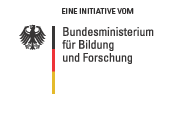The German Biotechnology Sector 2015

More revenue, more jobs, more funding – all signs are pointing towards growth in the German biotech sector. These are the central conclusions of the company survey carried out by the information platform biotechnologie.de at the beginning of 2015 on behalf of the Federal Ministry of Education and Research (BMBF). In 2014, the turnover exceeded the milestone of 3 billion euros for the very first time. For the first time since 2008, spending on research and development (R&D) has increased once again.
The structure of biotechnology sector
In terms of basic structure, the biotechnology sector in Germany did not undergo any significant changes in 2014. The total number of companies that are occupied wholly or predominantly with modern biotechnological methods rose slightly to 579 (2013: 570). Thereby, the following figures and conclusions relate only to the ‘dedicated’ biotechnology companies, as defined by the OECD. Throughout, there is sustained interest from big industry in biotechnological processes and services. This is confirmed by the constant high number of companies in which biotechnology represents only one aspect of business. In 2014, this category of ‘other biotechnologically active companies’ comprised a total of 131 companies (2013: 130). These included both pharmaceutical and chemical companies focused on innovative biotechnological processes as well as companies from the areas of environment, waste management, energy and agriculture.With a total of 14 start-ups (2013: 13) and seven bankruptcies (2013: 11) the inflows were predominating the scene. The founding dynamics were at the same level as the year before. Most of the newcomers are active in the health area (10), two of them focus on applications for animals. A further four start-ups can be assigned to the area of non-specific services, among them are two spin-offs founded by scientists of the IMTEK (Institut für Mikrosystemtechnik) at the university of Freiburg: Cytena GmbH has developed a device which safely and gently seperates cells.
The Ionera Technologies GmbH on the other hand provides a universal chip platform for ion-conductance based analytics. This year, three start-ups were founded out of established companies: Tübingen-based CeGaT GmbH initiated CAG GmbH, which specialises in animal research, and CeMeT GmbH, which focuses on microbiome research. Furthermore, the Hamburg-based Immunservice GmbH, founded the company 4 Animal Alsterscience GmbH to applicate their immune-based approaches to horses, amongst others.Two start-ups, Imevax GmbH and Rigontec GmbH, both established from winning projects of the BMBF GO-Bio competition, show that state funded start-up initiatives can have an influence on the founding dynamic. The LMU-spin-off MetaHeps GmbH was systematically supported through a pre-seed funding of the Munich excellence cluster m4. Additionally, the company received funding from the BMWi initiative EXIST. NEUWAY Pharma GmbH is the first start-up to result from the Life Science Inkubator GmbH at the research centre caesar, wherease Berlin Cures GmbH is the first spin-off from the Berlin Institute of Health. In 2014, the highest number of company founders came from Baden-Wuerttemberg (4), followed by Bavaria (3) and North Rhine-Westphalia (3), as well as Hamburg (2) and Berlin (1). The average age of a German biotech company is now eleven years, while some companies have reached thirty years of age – a very respectable age for such a high-risk industry. With the increasing age of the companies, the influence of the BMBF’s BioRegio competition, which took place in the 90s, has subsided. From today’s perspective, just a third (29 %) of the companies began their business activities between 1996 and 2001 in the wake of the competition. The geographical distribution of companies in 2014 shows no significant changes to the previous year. As before, the majority are based in Bavaria (104) and Berlin-Brandenburg (95). Because of the high amount of start-ups, Baden-Wuerttemberg (92) has moved forward, followed by North Rhine-Westphalia (89) (see Table 1).


